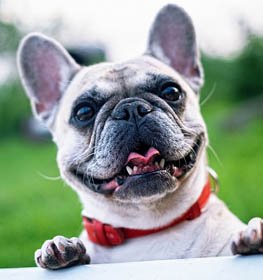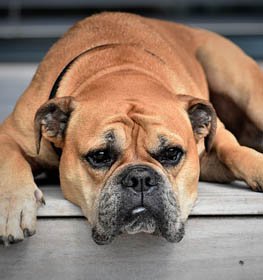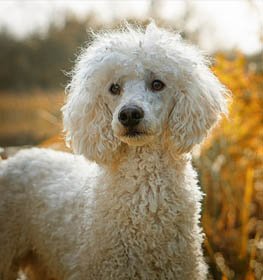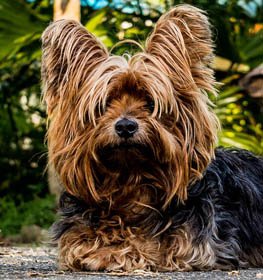Chizer Information & Dog Breed Facts
Collection of all the general dog breed info about Chizer so you can get to know the breed more.
| Group | Companion Dogs |
|---|---|
| Popularity Rank | 474 |
| Reviews | 0 |
| User Ratings | |
|
Compare the Chizer With Other Dogs
Select at least one dog breed to make the comparsion. | |
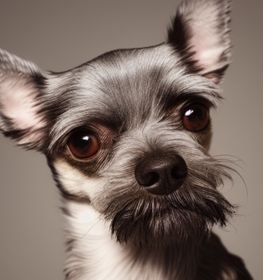 | |
| Origin | |
|
Other Names
What other names does the Chizer have?
| SchnizerSchnauchi |
|---|---|
|
Breed Type
What type of dog breed is it? | Cross Breed Chihuahua and Miniature Schnauzer mix |
|
Size
Is a Chizer small, medium or large dog?
How big do Chizer get? What is the average size of a Chizer? | Small |
|---|---|
|
Weight
How much does the Chizer weigh? How much should a Chizer weight? What is the normal weight of a Chizer? How much does a full-grown Chizer weight? | 4-15 pounds (2-7 kg) |
|
Average Weight
What is the average weight of a Chizer? | 9.5 pounds (4.5 kg) |
|
Height
How tall is the Chizer? Chizer height: | 6-14 inches (15-36 cm) |
|
Average Height
What is the average height of a Chizer? | 10 inches (25.5 cm) |
|
Price
How much does the Chizer puppy cost? What is the price range of this puppy? What is the average price of a Chizer in the United States? How much money is a Chizer?
Where to buy a Chizer with a good pedigree? | $300-$400 If you choose to purchase the Chizer, you should know that the mentioned amount of money is an average of the collected data from breeders’ sites and puppy finder places. If you have a Chizer for sale, please advertise it on a reliable website to make sure the Chizer gets to a happy place. |
|---|---|
|
Availability
How easy is it to get a Chizer? How many Chizer are there in the world? | Rare: You may rarely see each other in everyday life, but you might catch a glimpse of each other at dog shows. There are very few of them, and there have been times when they have almost drifted to the brink of extinction, so few are left. |
|
Intelligent Rank
How smart is the Chizer? Is the Chizer breed dumb or smart? | Average: It takes patience to teach this breed any tricks or commands, but the effort is worth it. They understand and remember new commands after an average of 25-40 repetitions.
The Chizer ranks average in the intelligence ranking of dogs. |
|---|---|
|
Trainability
Are Chizer dogs easy to train? Do they go well on dog training? How hard is it to train a Chizer? | Chizer dogs are quite easy to train. Sometimes they can be challenging, but if you're consistent in teaching new commands they will obey for sure. |
|
Watchdog Ability
Is Chizer good as a watchdog? Are they alert at night? | Chizer dogs are good watchdogs. Their main job is to observe and they're consistent in their effort. Good vocal cords and a sense of hearing belong to them. Usually, they're territorial and protective about their property, so the Chizer dogs will alert you if they sense something different.
|
|
Guarding Behavior / Territorial
Do Chizer dogs have aggressive behavior to protect their home/house/territory? Do they have guarding instincts? | Chizer dogs strongly protect their territory. This breed is a complete security guard, so you don't have to be afraid in case of danger. |
|
Temperament
What kind of personality does the Chizer have? What characteristics or traits does the breed have? | PlayfulLovingEnergeticIntelligentAffectionateLoyalGentle |
|---|---|
|
Sensitivity Level
How sensitive are they? Chizer sensitivity: | They are a little bit more sensitive than other dog breeds. Soft punishment affects them emotionally. Chizer dogs don't tolerate irregular daily routines, noisy households, and frequent guest visits really well.
They are receptive to their owner's emotions and make wonderful family companions. |
|
Affection Level
How affectionate are they? Is a Chizer a good family dog? | High: Chizer dogs are genuinely loyal, soft and gentle, loving, and affectionate dogs toward their handlers. They enjoy quality time with their owners despite the activity and are considered great therapy dogs for those in need. This breed responds strongly to their handler's emotions because they bond closely. Their happiness is your happiness. |
|
Social Needs
How much social interaction does the Schnizer need? Chizer social needs: | Chizer dogs need a lot of social interaction. They desire to always be with someone or around people. This breed hates being left alone. |
|
Impulse to Wander or Roam
How likely is the Chizer to run away? Does this breed explore or wander a lot? Does Chizer roam? | Chizer dogs tend to escape less than other breeds. They have low to average wanderlust potential. Exploring the world is not the best activity they can imagine. |
|
Prey Drive
Do this canine have a strong prey drive? Does Chizer have high prey drive? | Chizer dogs have an average prey drive, which means that they don't have a high impulse to chase and catch something like a cat or any other small aminals, but it might happen. Training can help to achieve good behavior. |
|
Playfulness
How playful is this breed? | Average: Chizers, like any other dog breed, like playing. Sometimes they bark in excitement for playing, but they are not the most playful dog breed. |
|---|---|
|
Barking
Do Chizer dogs bark a lot? Are they barkers/noisy? Why does my Schnizer bark? | Average to High: The Chizer is a vocal breed. Not the best choice if you prefer a quiet breed. They often bark loudly and howl sometimes. They can change their barks depending on their emotional level and what they're trying to say. Different barks could mean the same and the same barks could have different meanings.
Top reasons for barking: protection, alarm, fear, boredom, attention-seeking, greeting, separation anxiety, compulsive barking. |
|
Apartment Friendly
Is Chizer good as an apartment dog? Can they live in a flat? Can you have a Chizer in an apartment? | Apartment-friendly dog the Chizer breed. It is best if you have a small garden where it can occasionally go out to do its business, but this is not important at all. You can exercise him enough with a walk or two a day, so he's comfortable in an apartment. |
|
Adaptability
Are they adaptable and easy-going? | Chizer dogs adapt very well to lifestyle changes and basically all living environments. They don't mind moving from one place to another with their owner. |
|---|---|
|
Tolerates Being Left Alone
How long can a Chizer be left alone? How long can you leave a Chizer alone? | Chizer dogs tend to have separation anxiety when their owners left them alone at home because they bond very closely with them. |
|
Bite Force PSI
Does the Chizer has a hard bite?
What is the bite force of a Chizer?
How much bite force does a Chizer have?
How strong is a Chizer bite? | Between 100 and 200 PSI 🔽 Chizer bite force: Weak. The Chizer bite force is considered weak when compared to other dog breeds. The bite force Chizer measurements usually fall below 200 PSI, making them one of the breeds with the weakest bite force. The bite force of a Chizer may be weak, but it's important to remember that any dog's bite can still be dangerous if not managed properly. Despite the bite force of Chizer being lower, it does not make them any less lovable or enjoyable as pets.
Chizer bite wounds might not be as severe, but it is still essential to be cautious and prevent any biting incidents. They are usually not aggressive and very friendly towards children and other animals. To ensure a well-behaved dog, it's essential to learn how to train a Chizer puppy not to bite from an early age. With proper training and socialization, a Chizer can be a wonderful addition to any family, providing love and companionship for years to come. |
|---|---|
|
Biting Potential
Do Chizer bite humans? How likely are you to get bitten from the Schnizer? What are the odds of getting bitten by a Chizer? Why do dog bites happen?
| Low 🔽 The Chizer has a low chance of biting somebody. Top reasons for dog bite: protection, pain, excitement, herding instinct, being provoked. (Data based on the available online bite statistics.) |
|
Mouthiness
How much mouthing/nipping/play biting does the Chizer do?
| Chizer dogs have an average tendency to nip, chew, playbite, or herd people. It's a common habit during puppyhood, not aggressive behavior. These "bites" don't hurt, but Chizer dogs need to be taught a good attitude. |
|
Health Issues
Is it a healthy or unhealthy breed? Do Chizer dogs have health problems or genetic diseases? | Very healthy dog breed. The Chizer rarely meets with the veterinarian. |
|---|---|
|
Health Problems
What genetic/health problems does the Chizer breed have? What are the health issues and concerns of the Chizer breed? Most common health risks of Chizer: | Collapsed TracheaOpen FontanelPatellar LuxationEye ProblemsVon Willebrand's DiseaseHeart ProblemsEar InfectionsDiabetesSnoringUrinary StonesMegaesophagusLiver IssuesHydrocephalusHypoglycemiaShiveringCystsMyotonia CongenitaPancreatitisRheumatismSeasonal Allergies |
|
Veterinarian Visits
How often does the Chizer breed need to go to the vet? How often should you take your dog to the vet? How often should the Chizer see the vet?
| Rare The Chizer should have a complete physical check-up at least every 12-18 months (but preferably once per year). If your dog shows any symptoms, call your veterinarian. |
|
Life Expectancy
How long do Chizer dogs live? How old can a Chizer be? What is the age limit of the Chizer? How many years can the oldest Chizer live?
What is the average life expectancy / lifespan of a Chizer? How long is the lifespan of a Chizer? | 11-15 years The average lifespan of Chizer: 13 years |
|
Weather and Climate
Which weather condition is preferred by this dog? Can they tolerate hot or cold weather and climate? | Tolerates warm and cold weather Dogs that tolerate hot and cold weather are typically those that have a double coat of fur. Dogs with a double coat of fur have a layer of fur that insulates their skin and helps protect them from the cold and the heat. |
|
Energy Level
How much energy does the Chizer have? What is the activity level of the Chizer?
| Chizer dogs have a higher energy level than other dog breeds. If you want a dog for snuggling on the couch, this breed isn't the perfect choice for you. |
|---|---|
|
Activity Requirement / Exercise Need
How much exercise does a Chizer need? How much exercise do Chizer dogs require per day?
Do Chizer dogs need a lot of exercises? | Chizer dogs exercise need is minimal. If you live a slow life, this breed can be a good choice for you. |
|
Sleeping Need
How much sleep does the Chizer breed need? | Chizer dogs are quite energetic dogs and they don't spend too much time with sleeping. If you live an active life, this breed can be a good choice for you. |
|
Average daily food consumption
How much food does a Chizer need? What dog products should I buy? How much food does a Chizer breed eat per day? What is good dog food for Chizer? How much food should I feed my Chizer? | 0.5 to 1.5 cups of high-quality dry food a day, divided into two meals. |
|---|---|
|
Weight Gain Potential / Prone to Obesity
How easy to gain weight for this dog? Chizer risk for obesity: | Average: The Chizer has an average risk for obesity. Daily walks should be on schedule. To make your dog happy and fit, feed him with quality dry dog food and live an active life together. Try to find the happy medium between exercise and feeding.
If you notice any weight gain, consult your veterinarian and make a diet plan. Reduce unhealthy food and snacks, and measure the Chizer weight regularly. |
|
Coat / Hair Types
What type of coat does the Chizer have? What does this canine coat/fur look like? | Wiry |
|---|---|
|
Colors
What color is the breed's coat? What color are proper Chizer coats? | BlackTan Cream White Brown Golden Chocolate |
|
Grooming
How to groom the Chizer and how often? How often should I take my Chizer to the groomer? | Easy to groom: The Chizer doesn't require a lot of grooming. Seasonal flea treatment is needed, but cutting the dog's hair by a professional groomer isn't necessary. Ears and eyes should be cleaned regularly to avoid infections. Chizer is a good choice if you don't have the time, skill, or money to take care of a high-maintenance dog. Recommended for beginners. |
|
Shedding Level
How much do Chizer dogs shed? How to control, reduce and prevent the shedding of the Schnizer? Do Chizer dogs shed a lot? | Chizer dogs shed none to minimal. Having a puppy from this breed you don't have to be afraid of your couch or car being covered by dog hair. Chizer dogs could be the best choice if you don't tolerate dog hair. |
|
Bath Time / Bathing Frequency
How often does the Chizer need a bath? How often should you give a Chizer a bath? Can I bathe my Chizer every day?
| 8-12 weeks Very rarely. Bathing your dog is beneficial to them in more ways than just one. It’s also a good time to look for unusual scratches, bumps, fleas, and other irregularities. When their hair is wet and flat against their body, these details are more visible.
For example, short-haired dog breeds can go a very long time in between baths. These short-haired breeds shed regularly and that shedding works to naturally remove excess dirt and oil. So unless your weenie dog got into the garbage can, you can probably hold off on a bath for a while. |
|
Hypoallergenic
Is the Chizer breed hypoallergenic? | No Chizer dogs don't do well with allergy sufferers by causing allergic reactions. Some dog breeds are even considered to higher possibility of an allergic response. Coat type isn't necessarily relevant, because most people are allergic to dander (flakes on the dog's skin) or saliva, not actually to dog hair. |
|
Stinkiness
How stinky is this dog? Why does it smell bad and how to get rid of the smell?
| Medium ⏺ The Chizer has an average chance of bad smell. Top reasons for dog stinkiness: infection of bad tooth/ear/skin folds, gas attacks. |
|
Drooling Tendency
Does the Chizer drool? | The Chizer is a perfect example of a very low drooling tendency. If you're disgusted by slobber spots on your clothes, the Chizer could be a perfect choice for you. Drooling is the unintentional saliva flowing outside of the mouth. It can be completely normal or a sign of a health problem. Certain dog breeds drool minimum compared to others, just like the Chizer.
If you notice any change in your dog's drooling habit, you should contact a vet as soon as possible. |
|
Pet Friendly
Are they pet-friendly dogs? How well do Chizer dogs get along with other pets? Are Chizer dogs good with pets? What is this canine temperament with other pets? | Chizer dogs usually don’t get on well with other pets. |
|---|---|
|
Stranger Friendly
Are they aggressive or friendly towards/with strangers? Chizer temperament with other people: | Chizer dogs are not the most stranger-friendly dogs. |
|
Child Friendly
Are Chizer dogs kid-friendly? Are they good with young children? Chizer temperament with children: | Chizer dogs are average friendly dogs towards children. |
|
Cat Friendly
How well do Chizer dogs get along with cats? Are they good with kittens? What is this fido's temperament with cats? Can they be good with cats? Can the Chizer breed live with a cat? | Chizer dogs are not the most cat-friendly dogs. |
|
Dog Friendly
Is Chizer good with other dogs? Are they dog-friendly dogs? How well do Chizer dogs get along with other dogs? | Chizer dogs are not the most dog-friendly dogs. If you want more dogs in your family or you'd like to join dog meetups, the Chizer is not a good choice. |
|
Good For First Time Owners
Is Chizer breed good for first-time owners? Do they make a good dog for novice owners? Is Chizer breed suitable for first-time owners? | Yes Chizer dogs are good for novice owners, due to their easy-going personality. |
|
Office Friendly
Are Chizer dogs good office canines? Do Chizer dogs make good office-friendly pets? Can they be office dogs? | No Chizer is not the best dog breed for office environment. |
|
Senior Citizens Friendly
Are they senior citizens friendly dogs? How well do Chizer dogs get along with the elderly people? What is the Schnizer temperament with senior people? Are Chizer dogs good for elderly owners? | Chizers are commonly okay with elderly people. |
|
Service Dog
Are they good as service dogs? Can Chizer be a guide dog? Are they used as seeing-eye dogs? | Not really This breed generally not used as a service dog. A service dog is a term used in the USA to refer to any type of assistance dog specifically trained to help people who have disabilities, such as visual impairment, hearing impairments, mental disorders, seizures, mobility impairment, and diabetes. Service dogs are protected under the ADA (Americans with Disabilities Act).
Chizer is not the best breed for service purposes. |
|---|---|
|
Therapy Dog
Are they good as therapy dogs? Can Chizer be a therapy dog? Are they good anxiety dogs? Can a Chizer be an emotional support animal? | Not really This breed is generally not used as a therapy dog. A therapy dog is a dog that might be trained to provide affection, comfort, and love to people in hospitals, retirement homes, nursing homes, schools, hospices, disaster areas, and people with anxiety disorders or autism.
Chizer is not the best breed for therapeutic purposes. |
|
Detection Dog or Sniffer Dog
Are they good as detection dogs? Can Chizer be a sniffer dog? | Not really They are not typically employed for this type of work, but there may be exceptional cases. A detection dog or sniffer dog is a dog that is trained to use its senses (mostly its smell) to detect substances such as explosives, illegal drugs, wildlife scat, currency, blood, and contraband electronics such as illicit mobile phones.
Chizer is not the best breed for detection purposes. |
|
Search and Rescue Dog (SAR)
Are they good as SAR dogs? Can Chizer be a search and rescue dog? | Not really This dog breed is not typically used as a search and rescue dog. The use of dogs in search and rescue (SAR) is a valuable component in wilderness tracking, natural disasters, mass casualty events, and locating missing people.
The Chizer is not the best breed for SAR purposes. |
|
Boat and Sailor Dog
Are they good as boat dogs? Can Chizer be a boat dog? | Not really Chizer breed usually doesn't like being on a boat. Boat dogs were typically bred for their strength, stamina, and water resistance, as they were often required to perform tasks such as pulling in fishing nets, and jumping into the water to retrieve ropes or lines, or helping to move cargo. Sailor dog is a type of dog that was bred to accompany sailors on their voyages. They were typically used for three purposes: as a working dog, a watchdog, and as a companion. A boat dog is a term used to describe a type of dog that was traditionally bred and used as a working dog on boats. |
|
Cart Pulling or Drafting Dog
Are they good as cart pulling dogs? Can Chizer be a drafting dog? | Not really A drafting dog or draft dog is a dog bred and used for cart pulling. Dogs bred for this work have strong builds and qualities that are needed, strength and determination.
Chizer is not the best breed for drafting purposes. |
|
Fighting Dog / Military Dog
Where Chizer dogs used as fighting / military dogs in history? | Not really In history, this breed was not really used for combat dog. |
|
Gestation Length
How long is a Chizer pregnant?How long does it take to have puppies? How to tell if the Chizer breed is pregnant? | 60-64 days Reproductive cycle of the female Chizer: The first period called Proestrus lasts for about 9 days.
During this time the females start to attract males. You can notice by swelling vulva and bloody discharge. The second part is the Estrus when the female is receptive for the male. It lasts for about 3 to 11 days. The sign of the proestrus part is the soft and enlarged vulva. The discharge decreases and lightens in color. The third part is the Diestrus. Normally, it occurs around day 14. In this period the female’s discharge changes for vivid red and coming to its end. The vulva returns to average, and she will no longer permit mating. The fourth part called the Anestrus. The time frame between heat periods normally lasts about six months. |
|---|---|
| Litter Frequency | Once a year. More frequent breeding is not healthy. It is very important not to buy a dog from a puppy mill, where the needs of the pups and their mothers are ignored. It's an inhumane high-volume dog breeding facility, where puppies born several times a year. |
|
Litter Size
How many puppies can the Chizer have in a litter?
How many puppies can the Chizer breed have for the first time?
How many puppies does a Chizer have?
How many puppies can a Chizer give birth to? | 4-7 puppies |
|
AKC Group
Is Chizer recognized by the American Kennel Club? | Not recognized by the American Kennel Club. |
|---|---|
|
FCI Group
Is Chizer recognized by the Fédération Cynologique Internationale (FCI)? | Not recognized by FCI. |
Chizer Pros and Cons
- Health Issues: Very healthy dog breed.
- Apartment Friendly: Apartment-friendly dog the Chizer breed.
- Grooming: Easy to groom: The Chizer doesn't require a lot of grooming.
- Shedding Level: Chizer dogs shed none to minimal.
- Drooling Tendency: The Chizer is a perfect example of a very low drooling tendency.
- Watchdog Ability: Chizer dogs are good watchdogs.
- Impulse to Wander or Roam: Chizer dogs tend to escape less than other breeds.
- Adaptability: Chizer dogs adapt very well to lifestyle changes and basically all living environments.
- Good For First Time Owners: Chizer dogs are good for novice owners, due to their easy-going personality.
- Hypoallergenic: Chizer dogs don't do well with allergy sufferers by causing allergic reactions.
- Tolerates Being Left Alone: Chizer dogs tend to have separation anxiety when their owners left them alone at home because they bond very closely with them.
- Cat Friendly: Chizer dogs are not the most cat-friendly dogs.
- Dog Friendly: Chizer dogs are not the most dog-friendly dogs.
- Office Friendly: Chizer is not the best dog breed for office environment.
Chizer History
Chizer Origins
The Chizer is a hybrid result of the breeding of two purebred canine breeds, the Chihuahua and the Miniature Schnauzer. The Chizer originated most likely in the United States sometime prior to 2009, when it was officially recognized by the Designer Canine Registry. However, as it is a fairly new breed, to be able to understand the breed’s origins and history we have to look at the parent breeds.
Chihuahua’s origins as a parent breed
First of all, there is a lively debate surrounding the Chihuahua’s official origins, but most historians agree that the famed city of Chihuahua played a key part in the discovery, popularity, and accessibility of one of the world’s tiniest and most cherished dogs. However, the details aren’t quite so clear. The Chihuahua was first discovered in the mid-19th century and is thought to be a direct descendent of the Techichi, a small desert dog that dates back to Mayan times. The ancient Toltecs civilization is thought to have tamed these pre-Columbian canines which were similar in size and shape to Chihuahuas. Despite the fact that the Techichi breed is no longer existing, images of this dog in old relics and effigies imply that they had physical attributes similar to modern Chihuahuas. One of the striking similarities is their unique “apple head” and “dear head” skull shapes. According to research conducted by the Stockholm Institute of Technology, around 70% of present Chihuahua DNA comes from the ancient South American Techichi. For decades, the remaining 30% has been a source of contention. The evidence suggests that the unknown DNA most likely came from a dog breed outside of Mexico. However, the specific breed is yet unknown.
On the other hand, many people believe that the Chihuahuas may have originated in China from the Chinese Crested breed. The Chinese Crested’s linage can be traced to port cities all over the world thanks to sailors who brought these small pups with them on trade travels. It is thought that these trading operations are the reasons why the Chinese Crested ended up in Central and South America, where the breed was then introduced to the Aztecs. According to experts, Chinese Crested and Techichi may have crossed at this point, creating a new breed. Others suggest that the 30% of the Chihuahua’s DNA that has yet to be determined does not belong to the Chinese Crested at all. Instead, scientists believe that the unidentified DNA belongs to the Mexican Xoloitzcuintli or the European Maltese pocket dog. Although the Chihuahua’s actual lineage is disputed, the date of its official discovery is not. This breed began to appear all across Central and South America in the late 1800s, with Chihuahua, Mexico serving as the major site of origin. The small dog was subsequently bred and marketed by Mexican merchants to visitors, many of whom brought them back to the United States to keep as pets. At this point in time, the popular dog breed still didn’t have an official name. Locals and tourists alike began referring to the little pups simply by the region in which they were most widely found, Chihuahua. The name stuck by the late 19th century, and the American Kennel Club registered the Chihuahua as an official breed in 1904.
The Miniature Schnauzer’s origins as a parent breed
The tiniest and most popular Schnauzer is the Miniature Schnauzer. The Miniature Schnauzer was bred in Germany in the 1800s as a ratting and small farm dog but has since grown in popularity as a companion dog. The breed is thought to have been created by crossing smaller Standard Schnauzers with Affenpinschers and Poodles to create a smaller Schnauzer. Moreover, the Miniature Schnauzer’s popularity skyrocketed, and at one point, the breed was the third most popular in the United States. The breed arrived in the U.S. in 1924 and was recognized by the American Kennel Club two years later in 1926. Despite being closely related to the Standard Schnauzer of the utility group, the Miniature breed was originally known as the Wirehaired Pinscher in America and is still classified as a tiny Terrier today. However, unlike the Terrier, the Miniature Schnauzer did not develop on the British Isles in ancient times, thus its temperament is completely different from that of the Terrier, who is known to ‘go to ground’ with passions and courageous commitment. The Schnauzer, on the other hand, is a cheerful and jolly breed. Schnauzer is a German word that means “little bread” and it is particularly fitting for this serious-looking breed that often reminds people of a little old man. However, the temperament of this breed is far from a cranky old guy. Over the course of two centuries of breeding, the breed’s coat color has altered. The Miniature Schnauzer, once known for its bright colors, is now available in black, black, and silver, and salt and pepper.
Chizer Recognition
Besides being recognized by the Designer Canine Registry, the Chizer is also recognized by the American Canine Hybrid Club and the Dog Registry of America, and the Designer Breed Registry. It is recognized by the names of Chizer and Schnauzi in these registries.

